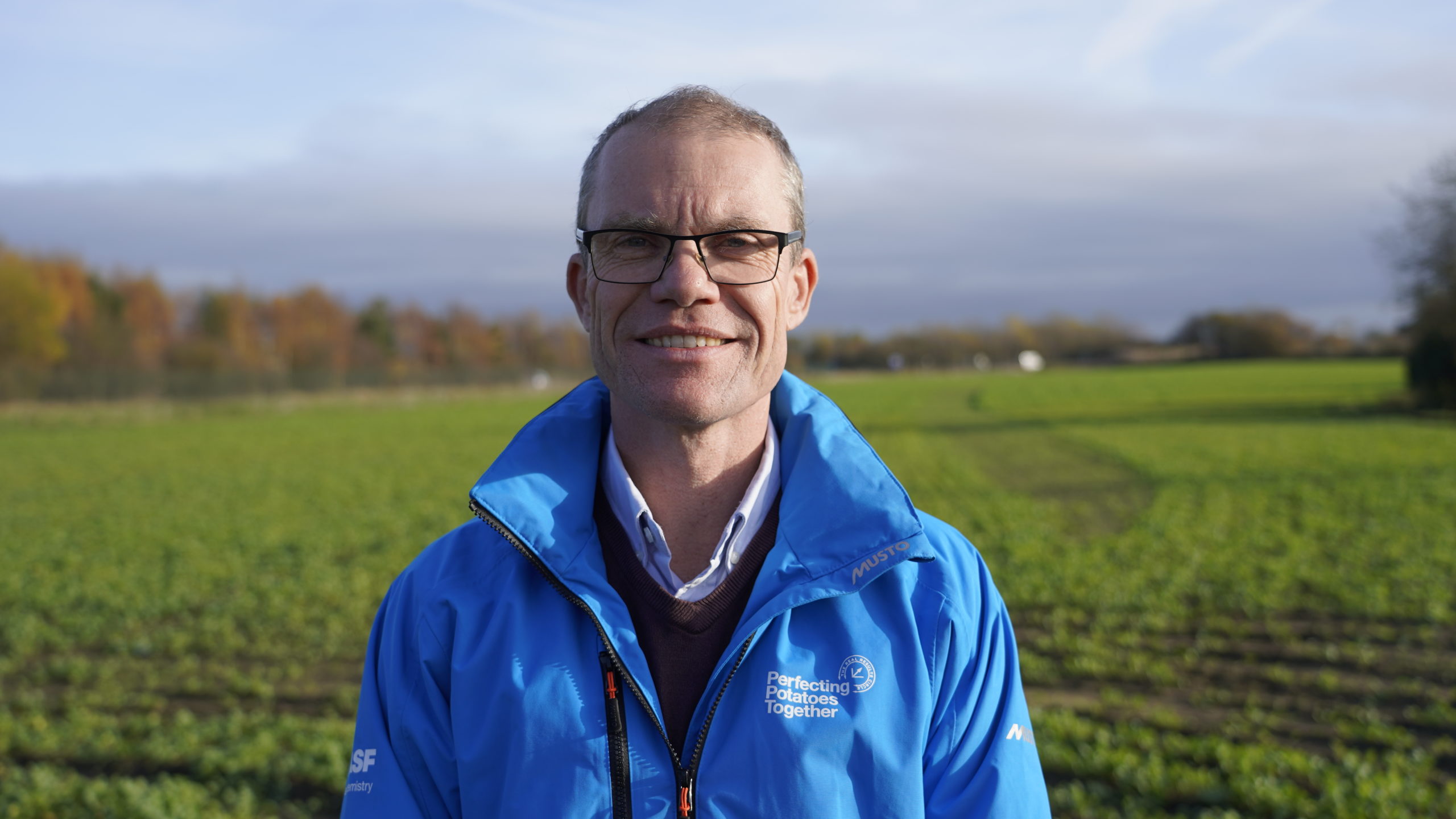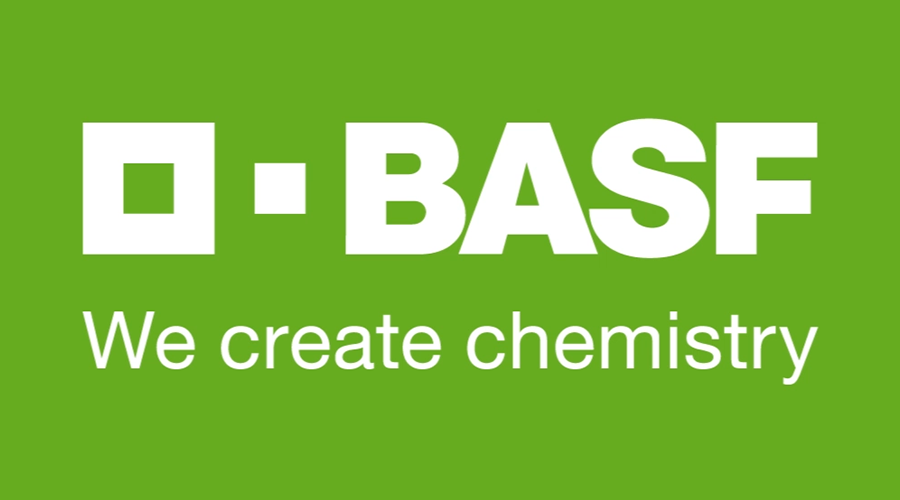The late blight pathogen is constantly evolving, and the emergence of increasingly aggressive blight strains and those with resistance to key chemistries makes building effective programmes more challenging.
BASF’s recent Perfecting Potatoes Together webinar, in partnership with the James Hutton Institute and GB Potatoes, gave an insight into some of the innovation and collaboration which will enable growers to optimise the crop’s agronomy and safeguard chemistry and genetics going forward.
During the one-hour session, which welcomed growers from all across the UK, the expert panel discussed some of the challenges the industry faces due to new blight resistance, the innovations available now and in the future, and the ongoing investment in research and development for the potato sector.
Fight Against Blight
Dr David Cooke, Senior Plant Pathologist at the James Hutton Institute co-ordinates both the Fight Against Blight initiative and data collection and analysis of the Euroblight population, which gives British growers a ‘heads up’ on the traits and clones of the pathogens emerging in continental Europe.
David said, “There are different clones of the potato blight pathogen and over time these change, so the blight that you are fighting in the field changes. This makes knowledge on the evolving populations very important.
“Scouts sign up to monitor fields and collect samples, which we then DNA fingerprint to enable us to identify the pathogen causing blight in that field. We use the Fight Against Blight website to alert growers as to when and which blight is active in the area.
“If blight of any strain gets out of control in the crop, then it has the potential to mutate and either overrun host resistance or become resistant to a fungicide.
“1.5 billion spores are produced per week from 1% disease cover. Every one of those spores that has been exposed to a fungicide potentially has a mutation that is going to cause problems to you downstream. That’s what we are seeing in the burst of new clones with new problems because of the exposure to products.
“So, it is really about following the principles of resistance management; no repetitive or solo use of products, mix actives with partners which have alternative modes of action, avoid eradicant applications and apply close to or at manufacturers’ recommended dose.”
Late blight resistance in 2024
Last year was a challenging season for many, with fungicide programmes more intense but effective.
Privest® (Initium® + potassium phosphonates), BASF’s new systemic late blight fungicide, with no resistance issues, was one tool that helped growers to build highly effective, sustainable programmes in a difficult season last year.
David said, “There are a lot of fungicides available which is the good news and a reasonable amount of them are effective against blight. However, some have been affected – we have resistance, and that is the bad news.
CAAs e.g. mandipropamid
“Resistance in EU43 clonal population but EU43 not yet sampled in the UK.
“Resistance concerns continue in mainland Europe.
Oxathiapiprolin
“Resistance reported by Corteva in mainland Europe in 2023 and 2024.
“Emergence of EU46 is a concern in the UK. In 2024 it expanded to Wales and Scotland. It has probably come to the UK by airborne spread. Early season sampling is going to be important to understand exactly what we are dealing with in 2025.
Fluazinam
“The good news is we have kept it for use in the armoury by being aware and changing its use.
Metalaxyl
“Has good potential, it is a good product, it is systemic but careful use and monitoring needed for EU13 and other lineages such as EU43 and EU41, which increased in frequency in 2024 in the UK.
“As we are aware of problems with some products that then focusses more pressure onto the other categories so this is why it is important to be careful about the way you use the products in the future.”
Cultivar resistance
Cultivar resistance is needed to complement fungicides
“Watch out for EU47 and others. Host resistance and fungicides need to work together to support each other to combat blight.”
BASF Innovation
Paul Goddard, BASF Business Development Manager for Potatoes, said, “It’s been 4 years since we launched Perfecting Potatoes Together and we are continuing to collaborate with industry experts to support profitable and sustainable potato growing in the UK. In terms of innovation, we have the strongest pipeline within potatoes in the industry, with three recently introduced products and five more coming to market, subject to approvals.”
Recently introduced:- Privest®
Last year was Privest®’s first season on the market.
Paul said, “Privest has already proved itself to be an invaluable tool in the fight against late blight.
“Privest is the only true systemic product with activity against all late blight genotypes. It has no resistance issues. Its proven very strong efficacy helps to build a sustainable programme for the current crop in the field and future crops.
“The chemistry in Privest is unique and does not clash with any of the other chemistry out there. This enables growers to simplify their programmes, as it is an ideal partner to alternate with modes of action such as CAAs and QiIs within the programme.
“Both actives in Privest have multiple modes of action, protecting each other and enhancing overall effectiveness as well as lowering the resistance risk. Privest’s formulation is key, enabling the actives to get to where they need to be on and in the plant and delivering effective disease control. The formulation also delivers a proven synergy between the actives, where one plus one equals more than two.
“Privest works with the plant as it grows, giving systemically acquired resistance. Applying it early, at rapid canopy development, gives the best protection of new growth and with up to three applications to a crop, ideally at 7-day intervals, it is an ideal partner going through to stable canopy.”
Recently introduced:- Potato Honesty® Pack
A new potato tuber treatment which has the strongest label of any tuber treatment that can be used on all potatoes. Honesty (Xemium®) is available in partner packs with an application enhancer.
Recently introduced:- Belanty® (Revysol®)
Paul said, “Belanty is a strong option when it comes to Alternaria.
BASF’s pipeline going forward – subject to approval
- “A new late blight fungicide, also bringing the non-clashing characteristics we have seen with Privest.
- “A new herbicide with both root and shoot uptake which will be particularly useful in dry conditions.
- “Axalion – new benchmark with regards to managing sucking and piercing pests in potatoes and other crops.
- “Adjuvanted formulation of Laser (cycloxydim)
- “Biological for the management of wireworm.”
GB Potatoes
Also joining the webinar was Alex Godfrey, Chair of GB Potatoes which launched in October 2022 to provide a cohesive and impactful voice for the sector.
Alex said, “With membership open to all in the potato industry we aim to facilitate collaboration which will help us to tackle the challenges facing the potato industry.
“In partnership with CUPGRA we established the GB PCN forum which brings together experts to discuss how we manage PCN across the industry creating a strategy. We also chair and administer the National Virus forum.”
Residual levy funds projects
In order to get the residual AHDB levy monies, GB Potatoes had to spend it specifically on projects.
Alex said, “We are currently involved in the following projects:
- “Potato blight – GB potatoes sponsor Fight Against Blight, to ensure a secure future which in turn takes some of the pressure off other sponsors.
- “Aphid monitoring.
- “Management tools to combat viruses.
- “Reputational management of the industry.
- “Bridging information gaps.
- “CIPC residue monitoring.
- “Update RB209 for potatoes.”
A new podcast series, in partnership with British Potato Review
The webinar was the first in a suite of activities, relaunching the BASF Perfecting Potatoes Together campaign for 2025. Later this year, a six-part podcast series will showcase some of the innovations and trials happening on farm, recorded live from the field and in partnership with British Potato Review. Editor Stephanie Cornwall will co-host the episodes with Rebecca Dawes of Jane Craigie Marketing, building up to the British Potato Event in Harrogate (19-20 November), where BASF will be exhibiting with some of their innovations. To find out more or follow the podcast series, search for “Perfecting Potatoes Together” on your preferred podcast platform.

